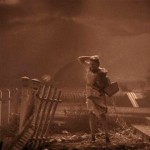 Let’s start at the very beginning (a very good place to start, as they say) — with the idea. The seed of an idea can be anything that sparks your interest, that ignites your passion: a person, a place, an event, a belief … anything. List some of those things. Then narrow your list to the top ten, the top five, and so on. As you compare ideas, put aside those that don’t grab your attention as much as others, until you’re down to one. Once you have that one idea, there are three more basic things to choose.
Let’s start at the very beginning (a very good place to start, as they say) — with the idea. The seed of an idea can be anything that sparks your interest, that ignites your passion: a person, a place, an event, a belief … anything. List some of those things. Then narrow your list to the top ten, the top five, and so on. As you compare ideas, put aside those that don’t grab your attention as much as others, until you’re down to one. Once you have that one idea, there are three more basic things to choose.
The first is your main character. This will help you set up the beginning of your story. If your idea is a fascinating person, then you’re already there. If not, think of a person who would be in that place, at that event, or practicing that belief. Say, for example, tornados fascinate you, so you choose a girl living in the middle of Tornado Alley.
The second is a complication for that person to face. This will help you move from the beginning of your story to the middle. Let’s say, she runs for shelter but is caught in a twister.
The third is the question that the complication raises. This will help you move from the middle of your story to the end. In this case, the question is likely “Will she get home safely or not?” If you haven’t guessed already, these choices could have been the basis for The Wizard of Oz.
Now, review your choices to make sure your story needs to be a musical — and not, say, a short story. People sing when they’re too emotional to talk, they dance when they’re too emotional to sing. You may have heard the advice to write what you know, but for musicals, you should write what you feel. Does your story have strong emotions?
If it doesn’t, choose another idea for your musical. If it does, then try to summarize your story in two sentences. One sentence should be about the narrative center, that is, what your main character wants and what stands in their way: “She wants to get home, but a witch wants to lock her up.” The second sentence is about the emotional center: “There’s no place like home.” You may change these as you discover more about your story, but always keep the latest version of these two sentences in your mind (or on sticky notes above your laptop) as you write.
In the first half of her online workshop, playwright Young Jean Lee coaches you through eight writing prompts for finding an idea. During the second half, she offers four more prompts for writing dialogue. Watch the first part now and return to the second part when we get to dialogue.
Also consider reading Letters to a Young Poet (1929) by Rainer Maria Rilke, ten letters of advice to a teen about being a writer, available at the National Emergency Library. In your spare time, explore this online library (which will be available only through June), using searches like “broadway musicals,” “songwriting,” and “vocal selections.”
Next, outlining your musical.
